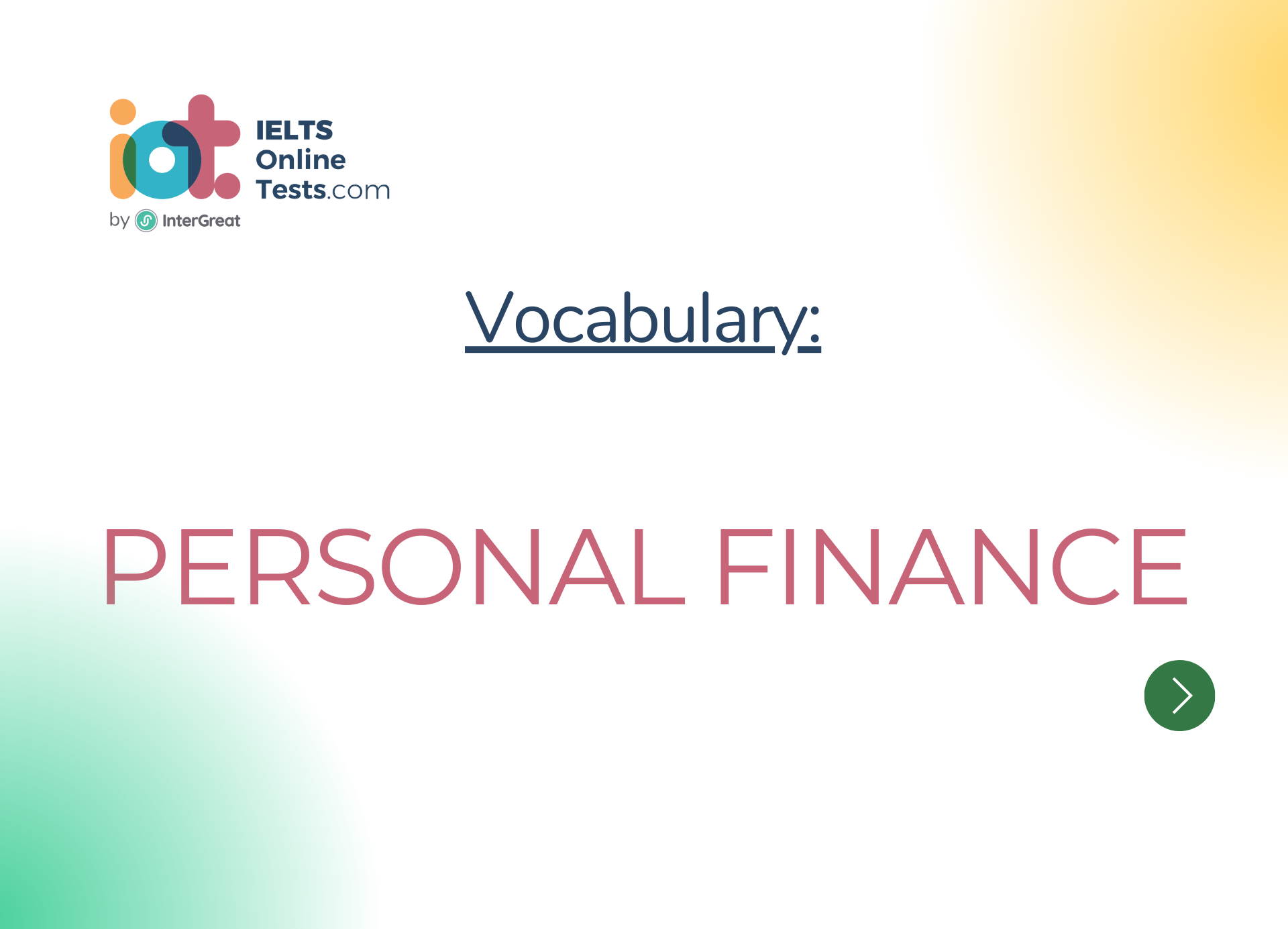
Personal finance
Here's a detailed list of vocabulary related to personal finance for the IELTS band score 4.5-6.0:
Budget:
A plan for managing income and expenses over a specific period.
Income:
Money earned from various sources, such as salary, wages, or investments.
Expenses:
The money spent on goods, services, and bills.
Savings:
Money set aside for future use or emergencies.
Investment:
Putting money into assets or ventures with the expectation of earning a profit.
Debt:
Money owed to creditors or lenders.
Credit Card:
A plastic card that allows users to make purchases on credit.
Interest:
The cost of borrowing money or the return on investment.
Loan:
Money borrowed from a lender, which must be repaid with interest.
Mortgage:
A loan used to buy real estate, typically repaid over a long period.
Interest Rate:
The percentage charged on a loan or earned on an investment.
Credit Score:
A numerical representation of a person's creditworthiness.
Credit Report:
A detailed record of a person's credit history and financial transactions.
Assets:
Things of value that a person owns, such as property, stocks, or savings.
Liabilities:
Debts or financial obligations that a person owes.
Net Worth:
The difference between a person's assets and liabilities.
Insurance:
A contract that provides financial protection against risks or losses.
Retirement:
The period when a person stops working and lives off their savings and investments.
Pension:
A regular payment received during retirement from an employer or government.
401(k):
A retirement savings plan offered by employers, where employees can contribute a portion of their salary.
Stock:
Ownership shares in a corporation.
Dividend:
A portion of a company's profits distributed to its shareholders.
Inflation:
The increase in the general price level of goods and services over time.
Interest Compounding:
Earning interest on both the principal amount and the previously earned interest.
Diversification:
Spreading investments across different assets to reduce risk.
Emergency Fund:
Savings set aside to cover unexpected expenses or emergencies.
Bankruptcy:
A legal process when a person or business cannot repay their debts.
Financial Planner:
A professional who helps individuals manage their finances and plan for the future.
Tax:
A mandatory contribution to the government based on income or purchases.
Tax Deduction:
Expenses that can be subtracted from taxable income, reducing the tax burden.
Tax Return:
A document filed with the government reporting income and taxes owed.
Estate Planning:
Making arrangements for the distribution of assets after a person's death.
Living Will:
A legal document that outlines a person's wishes regarding medical treatment in case of incapacitation.
Fixed Expenses:
Regular and predictable expenses that remain constant each month.
Variable Expenses:
Expenses that fluctuate each month, such as groceries or entertainment.
Compound Interest:
Interest earned on the initial principal and also on the accumulated interest.
401(k) Matching:
Employer contribution to an employee's 401(k) retirement plan.
Financial Literacy:
The knowledge and understanding of financial concepts and practices.
Net Income:
The amount of money left after deducting taxes and other deductions from gross income.
Net Loss:
When expenses exceed revenue or income.
Understanding these personal finance terms will help you manage your finances more effectively and enhance your language skills for the IELTS exam. Good luck with your studies!




